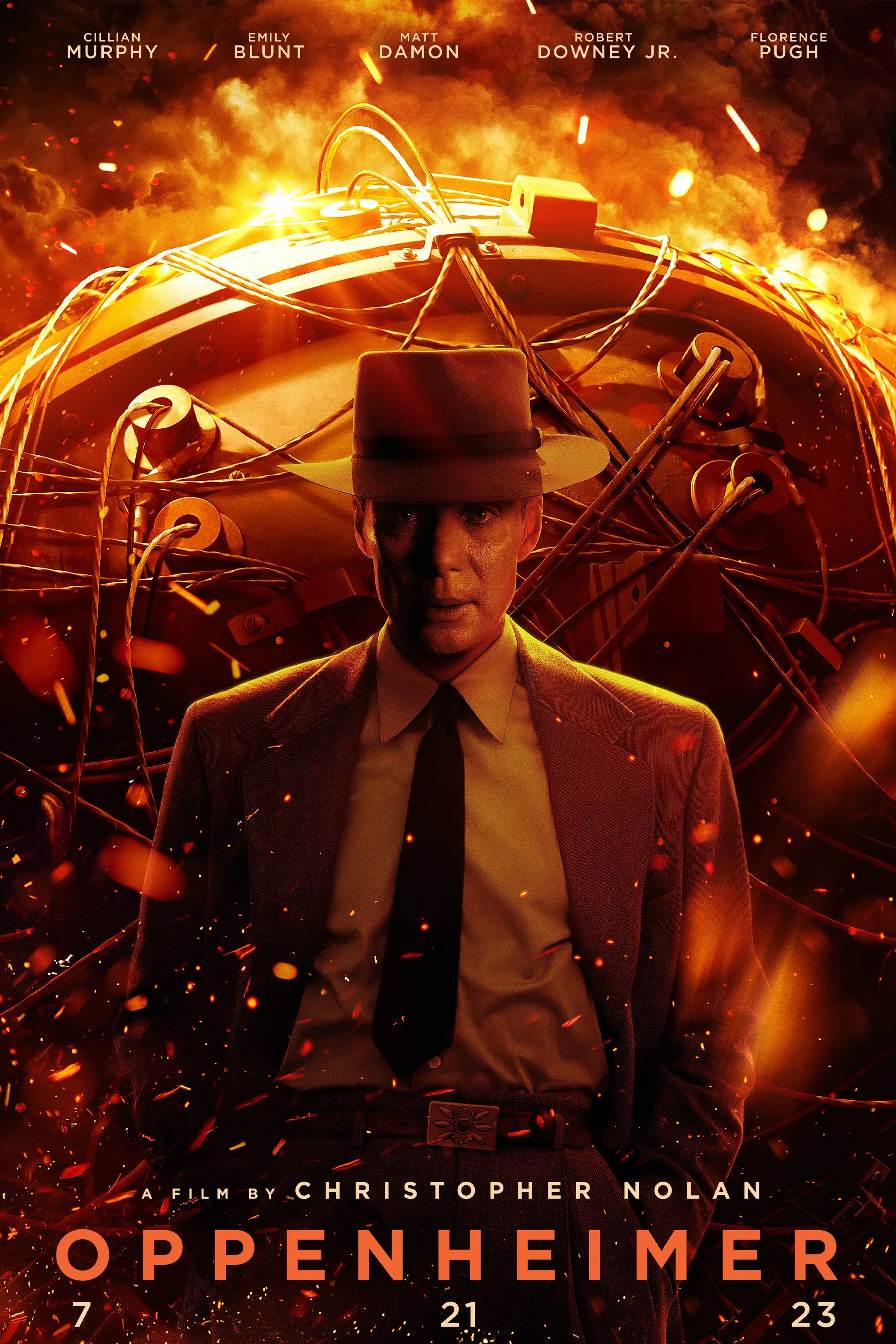Who Is Oppenheimer? The Man Behind The Atomic Bomb
J. Robert Oppenheimer, widely known as the "father of the atomic bomb," played a pivotal role in one of the most significant scientific and historical developments of the 20th century. His contributions to the Manhattan Project during World War II not only changed the course of the war but also reshaped global politics and the nature of warfare itself. This article will explore Oppenheimer's life, his scientific achievements, and the ethical dilemmas that arose from his work, providing a comprehensive look at a complex figure in American history.
Born on April 22, 1904, in New York City, Oppenheimer demonstrated an early interest in science and philosophy. He was a brilliant student, eventually earning degrees from Harvard University and the University of Göttingen in Germany. His academic prowess led him to become a professor of physics at the University of California, Berkeley, where he conducted groundbreaking research. However, it was his leadership of the Manhattan Project that would define his legacy.
In this article, we will delve into Oppenheimer's biography, his role in the development of nuclear weapons, the implications of his work, and his later life, including his reflections on the consequences of the atomic bomb. By examining these aspects, we aim to provide a well-rounded understanding of who Oppenheimer was and the impact he had on the world.
Table of Contents
- Biography of J. Robert Oppenheimer
- Early Life and Education
- The Manhattan Project
- Development of Nuclear Weapons
- Ethical Dilemmas and Reflections
- Later Life and Legacy
- Personal Life and Relationships
- Conclusion
Biography of J. Robert Oppenheimer
J. Robert Oppenheimer was born into a wealthy Jewish family in Manhattan, New York. His father was a successful textile importer, and his mother was an artist. Oppenheimer had a younger brother, Frank, who also became a physicist. The family had a strong emphasis on education and the arts, which greatly influenced Oppenheimer's intellectual development.
| Name | J. Robert Oppenheimer |
|---|---|
| Date of Birth | April 22, 1904 |
| Place of Birth | New York City, USA |
| Profession | Theoretical Physicist |
| Notable Work | Manhattan Project |
| Date of Death | February 18, 1967 |
Early Life and Education
Oppenheimer exhibited exceptional intellect from a young age. He attended the Ethical Culture Fieldston School and later transferred to Harvard University, where he completed his undergraduate degree in chemistry. His interests soon shifted to physics, and he went on to pursue graduate studies in the field.
After graduating from Harvard, Oppenheimer studied in Europe, where he worked with prominent physicists like Max Born and Werner Heisenberg. He earned his Ph.D. from the University of Göttingen in 1927, and upon returning to the United States, he began his academic career at the University of California, Berkeley.
The Manhattan Project
In 1942, during World War II, Oppenheimer was appointed as the scientific director of the Manhattan Project, a secretive U.S. government research initiative aimed at developing atomic weapons. Under his leadership, a team of some of the greatest scientific minds of the time worked together in Los Alamos, New Mexico, to achieve this monumental goal.
Key Achievements of the Manhattan Project
- Development of the first nuclear reactor (Chicago Pile-1).
- Successful test of the first atomic bomb (Trinity Test) on July 16, 1945.
- Creation of two types of atomic bombs: "Little Boy" and "Fat Man."
Development of Nuclear Weapons
On August 6 and 9, 1945, the United States dropped atomic bombs on the Japanese cities of Hiroshima and Nagasaki, respectively. These bombings played a crucial role in Japan's surrender and the end of World War II. However, the use of nuclear weapons raised significant ethical questions and concerns about the consequences of such destructive power.
Ethical Dilemmas and Reflections
After the war, Oppenheimer became increasingly aware of the moral implications of his work. He famously stated, "Now I am become Death, the destroyer of worlds," reflecting his complex feelings about the atomic bomb. He advocated for international control of nuclear weapons and warned of the potential for a nuclear arms race during the Cold War.
Key Ethical Questions Raised
- Was it justified to use atomic bombs on civilian populations?
- What are the long-term consequences of nuclear warfare?
- How should scientists navigate the ethical implications of their research?
Later Life and Legacy
In the years following the war, Oppenheimer faced scrutiny and criticism, especially during the Red Scare. He was accused of having communist sympathies and was stripped of his security clearance in a controversial hearing in 1954. Despite this, he continued to contribute to science and education until his death in 1967.
Personal Life and Relationships
Oppenheimer was married to Katherine ("Kitty") Puening, with whom he had two children, Peter and Katherine. His personal life was marked by a passion for literature, philosophy, and the arts, reflecting his diverse interests beyond the realm of physics.
Conclusion
J. Robert Oppenheimer remains a significant figure in history due to his contributions to science and the moral questions surrounding nuclear weapons. His life serves as a reminder of the dual-edged nature of scientific advancement and the responsibilities that come with it. As we reflect on his legacy, it is essential to engage in discussions about ethics, technology, and the future of humanity.
We invite you to share your thoughts on Oppenheimer's legacy in the comments below. If you found this article informative, please consider sharing it with others or exploring more content on our site about influential figures in history.
Thank you for reading, and we hope to see you back here for more insightful articles!
Exploring The Life And Career Of Jackerman: A Comprehensive Guide
Jaime Pressly Feet: A Comprehensive Look At The Actress And Her Unique Features
Lili Luxe: The Rising Star In Fashion And Luxury Lifestyle

